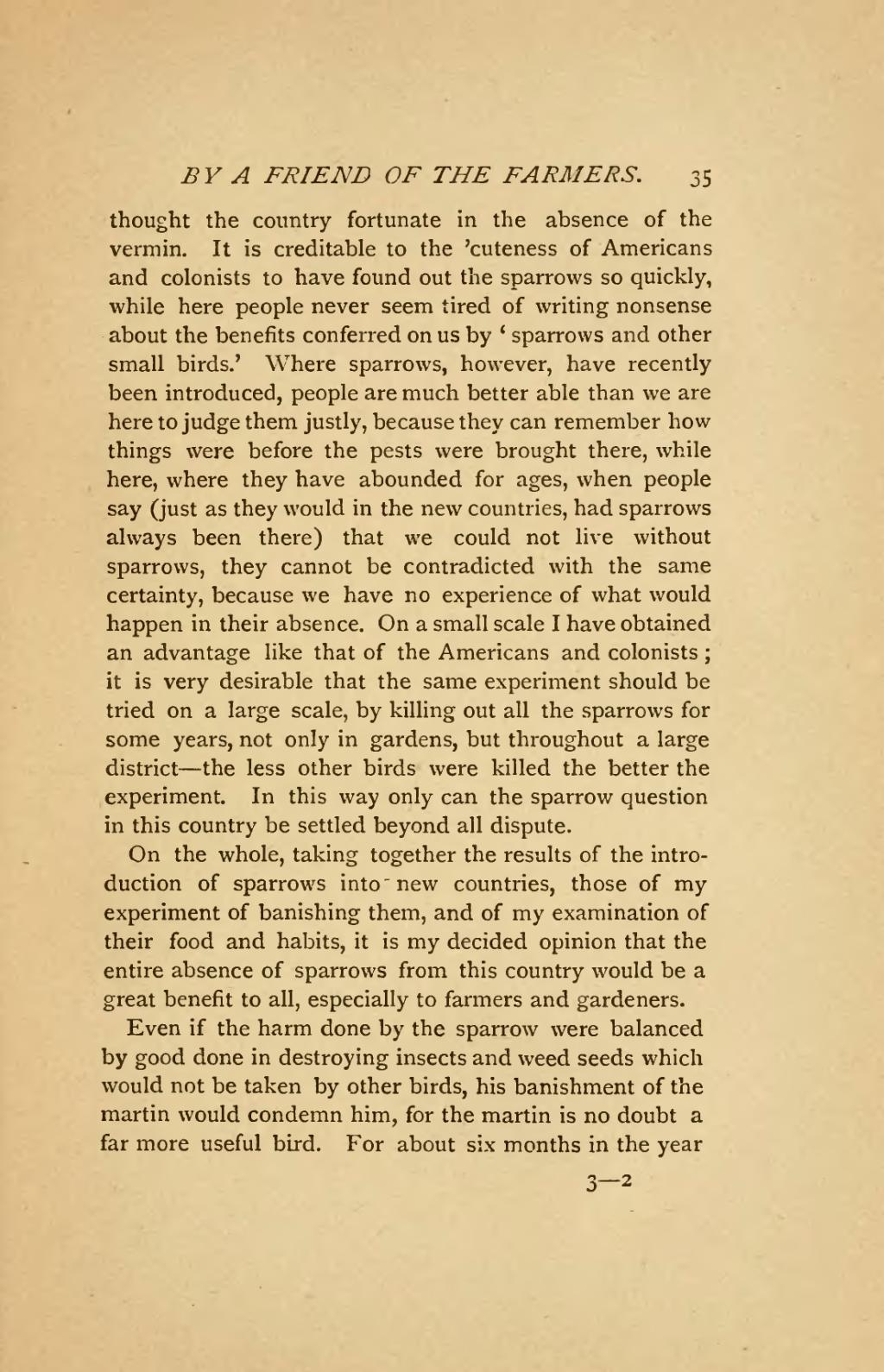thought the country fortunate in the absence of the vermin. It is creditable to the 'cuteness of Americans and colonists to have found out the sparrows so quickly, while here people never seem tired of writing nonsense about the benefits conferred on us by 'sparrows and other small birds.' Where sparrows, however, have recently been introduced, people are much better able than we are here to judge them justly, because they can remember how things were before the pests were brought there, while here, where they have abounded for ages, when people say (just as they would in the new countries, had sparrows always been there) that we could not live without sparrows, they cannot be contradicted with the same certainty, because we have no experience of what would happen in their absence. On a small scale I have obtained an advantage like that of the Americans and colonists; it is very desirable that the same experiment should be tried on a large scale, by killing out all the sparrows for some years, not only in gardens, but throughout a large district—the less other birds were killed the better the experiment. In this way only can the sparrow question in this country be settled beyond all dispute.
On the whole, taking together the results of the introduction of sparrows into new countries, those of my experiment of banishing them, and of my examination of their food and habits, it is my decided opinion that the entire absence of sparrows from this country would be a great benefit to all, especially to farmers and gardeners.
Even if the harm done by the sparrow were balanced by good done in destroying insects and weed seeds which would not be taken by other birds, his banishment of the martin would condemn him, for the martin is no doubt a far more useful bird. For about six months in the year
3—2
